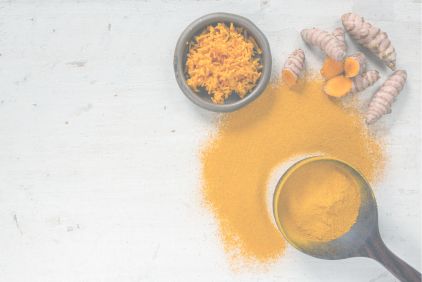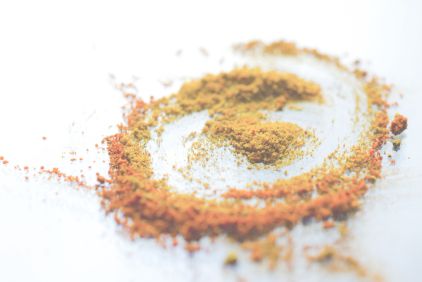Ayurveda, traditional Indian medicine, has for millennia recognized the importance of spices in the diet and their impact on health. Each Indian spice is selected and used according to its properties and interaction with the three doshas - Vata, Pitta and Kapha. These doshas, fundamental elements of Ayurveda, are at the heart of an individual's physical and mental constitution.
In this context, we'll be taking a look at a number of Indian spices that are not simply culinary ingredients, but essential components influencing the doshic balance.
The three doshas in Ayurveda

In Ayurveda, the doshas are the vital energies that govern our physiological and psychological functions. They are made up of combinations of the five basic elements: air, water, fire, earth and ether. Understanding these doshas is essential to grasping the impact of Indian spices on our constitution.
-
Vata (Air + Ether): The Vata dosha is responsible for all movement in the body. It manages circulation, breathing and the nervous system. A disturbance of Vata can lead to problems such as insomnia, dry skin or constipation. Warm, comforting spices, such as organic tchai, can help balance excess Vata.
-
Pitta (Fire + Water): Pitta manages digestion, metabolism and the body's thermal regulation. When Pitta is out of balance, it can manifest as inflammation, heartburn or sensitive skin. Spices such as organic turmeric longa are known for their anti-inflammatory properties, making them beneficial for balancing Pitta.
-
Kapha (Earth + Water): Kapha is associated with the body's physical structure, fluidity and stability. An imbalance of Kapha can result in a feeling of heaviness, excess mucus or weight gain. Stimulating spices such as organic kari madras, for example, can help energize and reduce excess Kapha.
Indian spices therefore play a role in balancing these doshas. The choice of spice will depend not only on the desired flavour, but also on the desired effect on the dosha concerned.
Indian spices: properties and interactions with the doshas

Each Indian spice has a special place in Ayurveda, depending on its flavor and doshic impact. They can be used to spice up your dishes while providing their many benefits. Here's a quick overview of the spices or spice blends often found in India:
-
Organic tandoori: a blend of spices usually including ginger, garlic and turmeric. Strengthens the metabolism and acts on the Vata dosha.
-
Organic garam masala: combines warming spices such as cinnamon and cardamom. Stimulates digestion and balances Kapha.
-
Organic Tchai: contains spices such as cardamom and cloves. Promotes digestion and balances Vata.
-
Organic Curcuma longa: main active constituent: curcumin. Notable anti-inflammatory properties. Helps balance the Pitta dosha and supports digestion.
-
Organic kari madras: varied composition including turmeric, chili, cumin and coriander. Stimulates digestion and balances Kapha.
The "organic" label indicates that these spices are grown without the use of pesticides or chemicals, thus preserving their optimal effectiveness in Ayurveda.
Mild curry and strong curry

Curry is undoubtedly one of the most emblematic spices of Indian cuisine, but it's essential to understand that it's not a single spice. It's a blend of spices, and depending on its composition, it can be categorized as "strong" or "mild". This distinction has significant implications in Ayurveda, particularly with regard to the doshas.
-
Strong curry: as the name suggests, this type of curry has a stronger, spicier taste. Generally rich in red chillies, strong curry is thermogenic in nature, meaning it generates heat in the body. This can increase digestive fire, but also exacerbate the Pitta dosha if it is already in excess. In such situations, excessive consumption of strong curry can lead to inflammation or heartburn. On the other hand, it can be beneficial for balancing excess Kapha, as it stimulates digestion and metabolism.
-
Mild curry: more moderate in terms of heat and spices, mild curry is consequently less pungent than strong curry. It often contains many spices, such as turmeric and coriander, giving it anti-inflammatory properties. Mild curry is particularly suitable for balancing Vata, as it is less irritating to the body. But overall, it is suitable for all doshas.
In practice, it is essential to choose the type of curry according to one's individual birth constitution (Prakriti) or current imbalance (Vikriti). A person with Vata dominance might opt for mild curry, while someone seeking to combat lethargy or stagnation linked to Kapha might turn to strong curry.
Indian spices at the heart of Ayurvedic well-being
Indian spices are therefore influential in Ayurveda, and it's no coincidence that they form an integral part of the majority of Indian dishes. Through their influence on the doshas and their active constituents, these spices interact with the human body, impacting digestion, metabolism and thermal balance. Opting for "organic" quality spices ensures the absence of pesticides, keeping their therapeutic potential intact. By using them judiciously, they become an essential tool for maintaining or restoring doshic balance in accordance with Ayurvedic principles.










